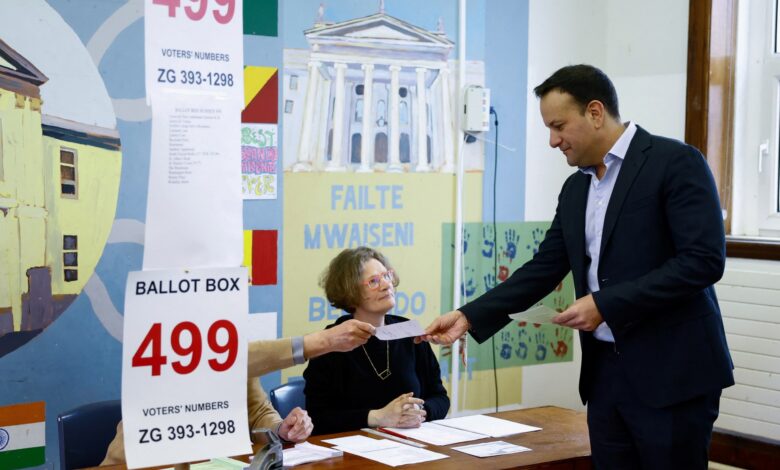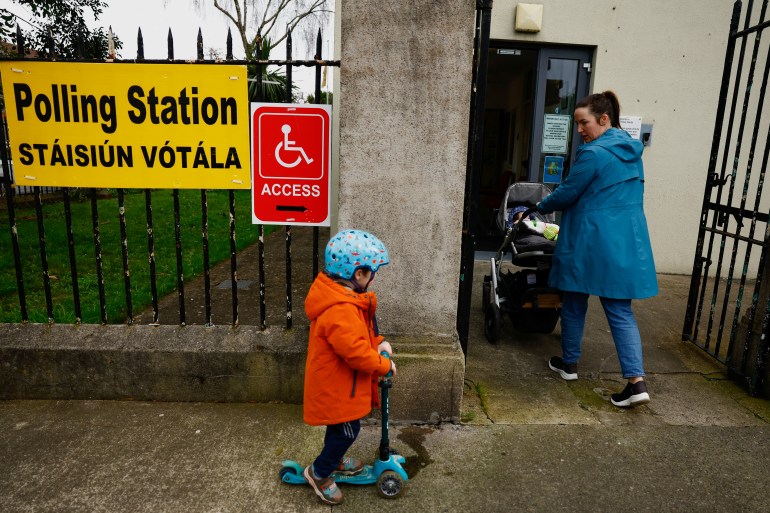Varadkar concedes defeat in Ireland’s referendum on family, women’s roles

The Irish PM had called the referendum a chance to do away with ‘very old-fashioned, very sexist language about women’.
A dual referendum in the Republic of Ireland on redefining family and women’s roles in the constitution has been defeated, Prime Minister Leo Varadkar said.
The government supported the proposed changes, which would have widened the definition of the family and clarified the duties of women in society.
Varadkar had described Friday’s polls, which deliberately fell on International Women’s Day, as a chance to do away with “very old-fashioned, very sexist language about women”.
He said the government would accept the results.
“I think it’s clear at this stage that the family amendment and the care amendment referendums have been defeated – defeated comprehensively on a respectable turnout,” Varadkar said at a news conference in Dublin on Saturday.
“It was our responsibility to convince the majority of people to vote ‘Yes’ and we clearly failed to do so.”
Official results are expected later on Saturday.
The two proposals would have made changes to the text of article 41 in the Irish constitution, written in 1937.
The first asked citizens to expand the definition of family from those founded on marriage to also include “durable relationships” such as cohabiting couples and their children.
The second proposed replacing old-fashioned language around a mother’s “duties in the home” with a clause recognising care provided by family members to one another.
In effect, the proposal to spread the burden of care for people with disabilities to the entire family from only the mother became a dispute about the extent or willingness of the state to support carers.

Polls had indicated a ‘Yes’ vote
All the major political parties had supported a “Yes-Yes” vote, and until recently, polls predicted a smooth passage for both.
But “No” campaigners argued the concept of a “durable relationship” was undefined and confusing and that women and mothers are being “cancelled” from the constitution.
Meanwhile, ultra-conservative voices argued the changes could constitutionally protect polygamous relationships and increase immigration via migrant family reunions – claims all denied by the government.
By 12:00 GMT on Saturday, it was clear that counting was showing a trend towards a “No” on the two questions.
The votes are the latest attempt to reflect the changing face of European Union member Ireland and the waning influence of the once-dominant Roman Catholic Church.
In recent decades, Ireland has transitioned from a conservative, overwhelmingly Catholic country to an increasingly diverse and socially liberal society.
This shift has been encapsulated in changes to an outdated constitution where single women, until 1973, had to resign from their jobs upon getting married, and married women could not apply for vacancies.
The constitution, the core legal text of the nation, can only be modified through a national referendum.
The country of 5.3 million opted to end constitutional limits on same-sex marriage in 2015 and abortion in 2018.
Source
:
Al Jazeera and news agencies



